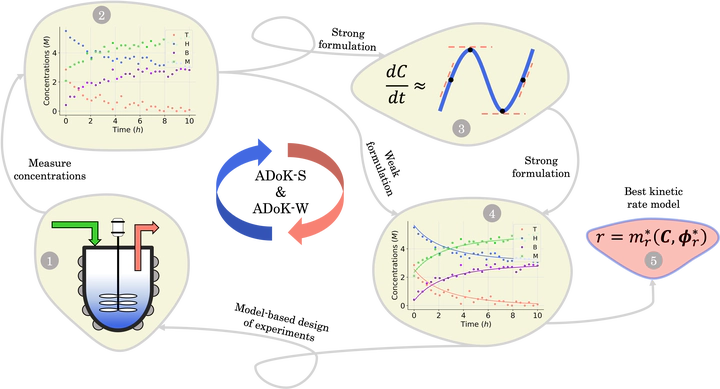Automated Knowledge Discovery

Automated knowledge discovery streamlines the process of identifying meaningful mathematical models from experimental data. By employing algorithms that can recognise patterns and derive equations, this approach facilitates the creation of predictive and interpretable models for chemical reactions. This is particularly important in fields like reaction engineering, where understanding the dynamics of chemical systems is crucial for process design, optimisation and control. Automated knowledge discovery methods not only speed up the discovery of kinetic models but also enhances our understanding of complex chemical processes through symbolic models, making them a powerful tool in chemical process development.